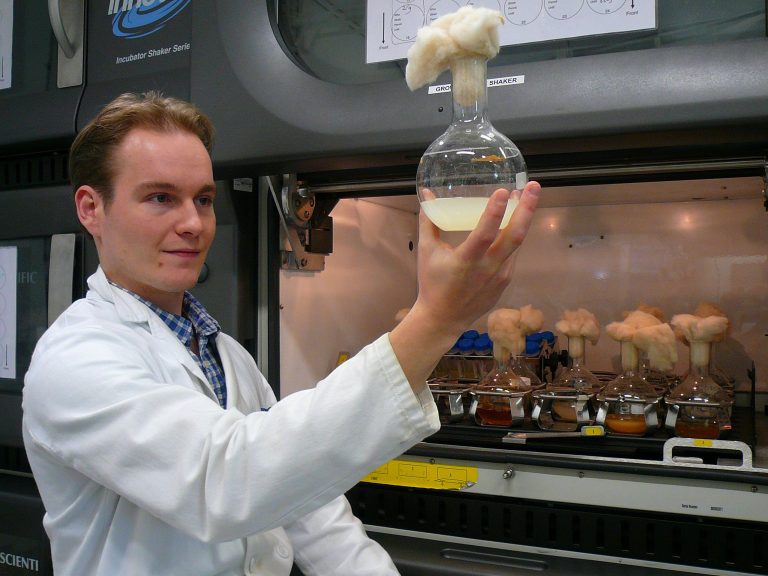His internship with Amyris in California led to a Nature publication and an invitation to stay. Still, Robert Mans returned to Delft to do a PhD. Why?
During the internship with Amyris in California, Mans began to realise that he had been well prepared during his study Life, Science and Technology in Delft and Leiden. He found that, after his education in the Industrial Microbiology (IMB) group, he could talk on level with geneticists, analysts, and process engineers. Mans noticed that he was familiar with the entire development cycle of genetic modification, high throughput screening, biochemical analysis and process improvement.
The project he worked on with numerous others was the improvement of farnesene production with yeast. Farnesene is a long organic molecule (with 15 carbon atoms) that can be used for the synthesis of biodiesel, cosmetics or polymers.


In the Nature article that was recently published, the group announced that from the same amount of sugar 25% more farnesene could be produced, while using 75% less oxygen. “Yeast doesn’t normally use the most thermodynamically efficient method to produce farnesene. It prefers a quicker synthesis. Via genetic engineering we have built in metabolic detours to make the conversion from sugar into farnasene more efficient and thus increase the production.” Despite all the bubbling and mixing, there is always a shortage of oxygen in large reactors. So reducing the need for oxygen is of keen interest when you’re talking large volumes.
At the end of his internship two invitations coincided. Amyris had told Mans’ Professor Jack Pronk (Applied Sciences) that they ‘wanted to kidnap’ Mans. In other words: they invited him to stay with them in sunny California. Pronk meanwhile offered him a PhD position in Delft. So what to do?
Mans had noticed a subtle hierarchy in the labs. There were technicians and associate scientists working in the lab who had their bachelor’s or master’s degrees. But the guys and girls who determined the research projects and who steered the work in the labs all had PhDs. “I decided I wanted the freedom of choosing on what to work. That meant I first had to do a PhD.” And so, the best graduate of 2012 returned to the IMB group in the new building for Applied Sciences.


Comments are closed.